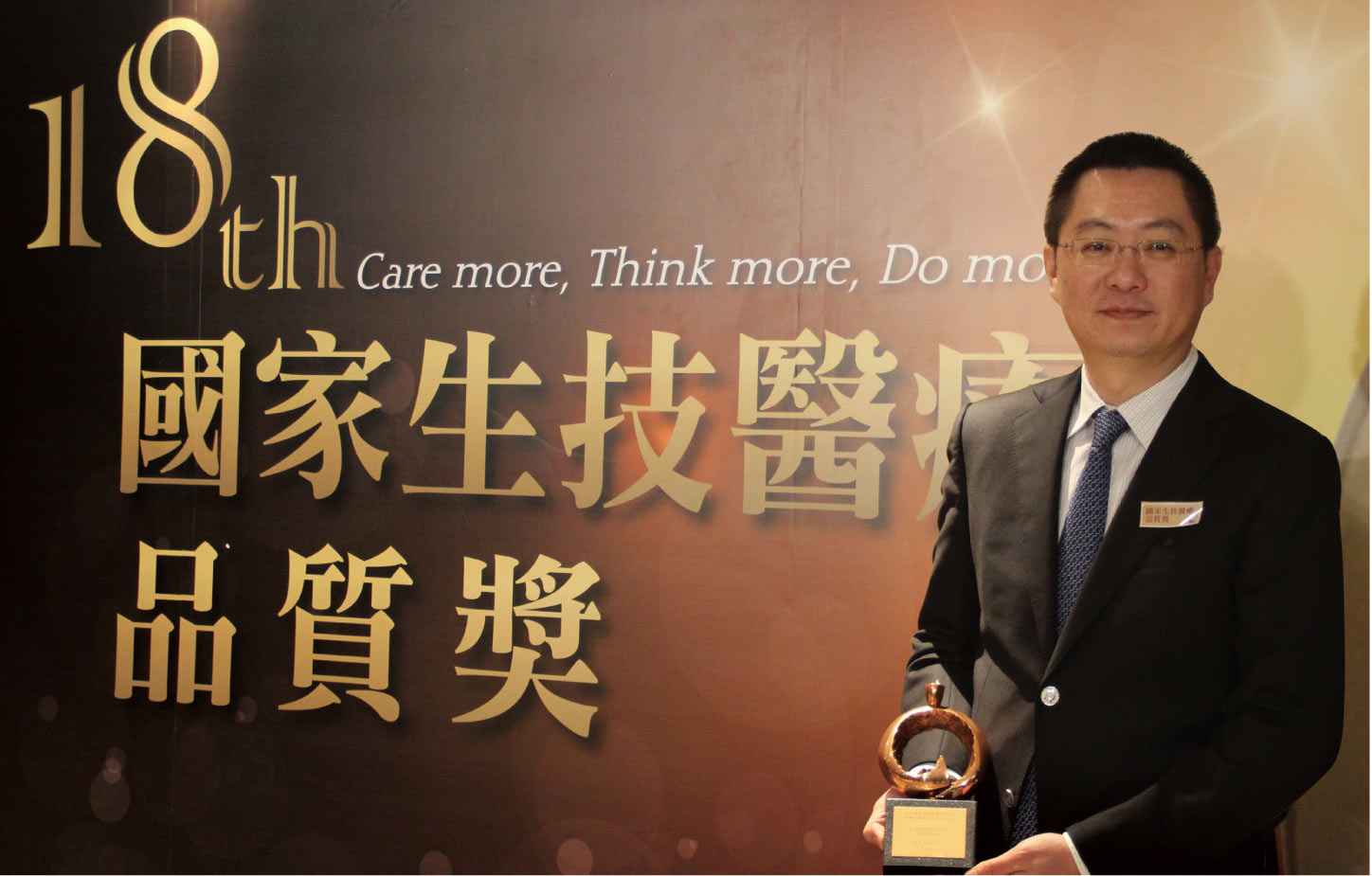

LANFAR International Co., Ltd.
Mr. Fu-chuan Hsu, founder of the company, got acquainted with Mr. Ralph Stolle (founder of Stolle Milk Biologics), and was moved by his life-long dedication to "elevating the qual-ity of life for mankind" and has since aspired to dedicate his life to the same goal. He founded LANFAR International in 1992 and started to market such products all over the world.
Stolle Milk holds over 250 patents under 10 catego-ries in 27 countries. With the promotional efforts of LANFAR International, the operation coverage has been expanded to Malaysia, China and Japan with an unparalleled number of sales championships earned for single products in this industry. Therefore, the com- pany was touted as the "company with the best know-how for selling milk powder in Taiwan" in a news report of the Business Weekly.
Address: 14F-2, No.112, Sec.2, Chung Shan N. Rd.,Taipei City 104, Taiwan


Three Minutes of “Code of Ethics Talks” Helps Enhance Your Personal Brand Power
In an era where branding is key to success, no business can survive in the consumer markets today without its own brand. However, in a market environment characterized by intense competition,how to break through bottlenecks and create personal brand differentiation and affect the product preferences of the consumers are very important know-how.
A brand is a symbol that represents quality assurance. The most distinctive brand characteristic of the Direct Selling Association (DSA) is the Code of Ethics it has promoted jointly with all member companies for a long time.
To promote the spirit of self-regulation under the Code of Ethics, a series of lectures given by celebrities which are known as the "Code of Ethics Talks" will be broadcast on the DSA's official website. The first film titled "Code of Ethics Talks – Applications of Code of Ethics" has been officially launched on the official website. In the film,Professor Tse-hsun Niu of the Advertising Department of the Chinese Culture University, who is a well-known marketing scholar, will analyze changes to the current marketing environment and the emergence of the digitalera, and discuss how direct sellers can create their own brand characteristics through the spirit of self-regulation under the Code of Ethics to further enhance their personal brand image and value and benefit the future operation of their direct selling business.
Click or scan the QRCode to access the film


“Evaluation Roadshows for the Code of Ethics of Direct Sellers” to Be Launched in July
The Evaluation Roadshows for the Code of Ethics of Direct Sellers, which are jointly organized by DSA and the Multi-Level Marketing Protection Foundation (MMPF), will be launched in July by conducting roadshows in northern, central and southern Taiwan to promote the spirit of self-regulation under the Code of Ethics and the dispute handling evaluation system. It is hoped that the image of the direct selling industry as an excellent benchmark can be shaped through the self-regulation under the Code of Ethics. In addition, like-minded partners can be extensively invited to set a good example and to jointly promote the rationale that disputes can be resolved through mediation together with the MMPF in order to set up a model system and standard to guarantee the rights and interests of direct selling companies, direct sellers and consumers, and to enhance the foundation of mutual trust.
The Roadshows will be conducted first on July 17 in Taipei and then in Taichung, and Kaohsiung on July 27 and July 31, respectively. In addition, representatives of the Fair Trade Commission, the MMPF and Code of Ethics Supervisors will serve as speakers to jointly discuss dispute handling and relevant industry issues with direct selling companies and direct sellers in Taiwan. The objectives are to integrate resources in the industry and help direct selling companies set up sound systems so as to effectively promote the self-regulation of direct sellers,enhance the visibility of the DSA, and create an impact for the industry. Detailed locations and relevant information will be successively announced by the Secretariat. The DSA's member companies are encouraged to sign up.


MOHW's Labeling Requirements for Food Allergens
On May 22, 2017, the Ministry of Health and Welfare (MOHW) first heralded the draft Requirements for the Labeling of Food Allergens and revised "five types of fish such as salmons and mackerels and their products" to "fish and fish products," and the expression "grains containing mucedins and their products" is changed into "gluten-containing grains and their roducts." In addition, sunflower seeds are not included in the mandatory labeling items for allergens internationally. Therefore,this requirement is deleted in order to be consistent with international standards. These requirements are expected to go into effect on July 1, 2020. If operators fail to conduct comprehensive labeling or if the labeling is false, the operators will be demanded to recall the products within a stated period along with a fine of NT$30,000 to NT$3,000,000 or NT$40,000 to NT$4,000,000 pursuant to the Law Governing Food Safety and Sanitation.


TFDA Strengthened Findings of Illegal Advertisements
The Taiwan Food and Drug Administration (TFDA) heralded the formulation of the draft Standards for Findings of Food Labeling Promotions or Advertisements Involved in Falsehood, Exaggeration or Misleadingness or Medical Effects on June 6, 2018.The draft has principle-based requirements for finding falsehood,exaggeration,misleadingness or medical effects.In addition, permitted expressions in labels, promotions or advertisements are properly relaxed to fall in line with international practices and to balance creativity with consumer rights and interests. The draft will also allow expressions concerning physiological functions for specific "ingredients." After the standards are formally announced, health authorities will strengthen their findings of illegal advertisements on such basis, and will proactively crack down on illegal advertisements to safeguard the health and safety of the people and protect consumer rights and interests.


Can Direct Sellers Use Works and Trademarks of Direct Selling Companies to Produce Promotional Materials without the Consent of the Direct Selling Companies?
Article 10 of the Copyright Law provides: "The author of a work shall enjoy copyright upon completion of the work." Article 33 of the Trademark Law also provides: "The rights holder of a trademark shall obtain the trademark right from the date of registration publication." Therefore, regardless of a copyright or trademark right, since such right is owned by another person, basically it cannot be used without a license from the rights holder. In particular, it cannot be used for profit generation, and there is no exception for direct sellers.
Although direct sellers can promote and sell products and services of direct selling companies, they are not necessarily entitled to using any work or trademark of the companies.
In direct selling practices in Taiwan, some direct selling companies specifically mention this in their Rules of Conduct. To wit, it is specifically stipulated that direct sellers may not use any work or trademark of a company without authorization. This practice involves complete prohibition. However, some direct selling companies adopt a practice where the works or trademarks of the companies shall not be used without license by requiring: "Any work of the company shall be protected under the Copyright Law of the country;and no direct seller or individual may copy or duplicate the contents thereof in whole or in part or engage in other infringing acts without the written permission of the company." It should be specifically noted that the existence of such requirements indicates that direct sellers cannot use any work or trademark of a company without authorization. Even with a license, there are still restrictions on the scope and methods of use.
In addition, copyright and trademark infringements do not only involve civil liabilities. Criminal liabilities are stipulated in the Copyright Law beginning with Article 91 and in the Trademark Law beginning with Article 95. Therefore, when using any work or trademark of a company, a direct seller should clarify the scope of use authorized by the company to avoid legal violations.
[Excerpt from the Practical Direct Selling Legal Issues]


